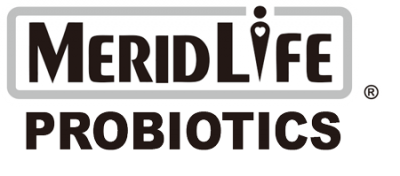What are Probiotics & Prebiotics?Why Do We Need Probiotics?Why Choose MeridLife Probiotics?Benefits of Probiotics?MeridlLife Proprietary BlendGlossaryFAQ
-
How can probiotics benefit your health?
The health benefits to probiotics are extensive.
There are currently 144 known benefits of probiotics. They fall into 3 main categories of benefits:
improve digestion
enhance immunity
reduce allergiesBeyond those extensively proven benefits, there are also other probiotic benefits:
improve nutrient absorption
improve women's health
improve dental health
improve cholesterol
fight food poisoning
improve mood
improve sleep
fight various cancersProbiotic Benefits to Women's Health
Probiotics have been proven to have significant benefits to women's health. Beyond the typical benefits of probiotics, probiotics also support women's vaginal health. Also, if women are breastfeeding, a Swedish study showed that probiotic supplementation improves infant heath.
improve infant health for breastfeeding women
inhibit vaginal candida & yeast infections
decrease risk of cervix cancer
fight vaginitis/vaginosisProbiotic Benefits to Infant Health
Infants get their first dose of probiotics from vaginal birth and other substances excreted at birth. After that, breast feeding gives infants the next dose of probiotics. I believe that for proper development of an infants immune system, breast feeding is extremely important. It's the way nature designed us!
In addition to breast milk, infants seem to pick up beneficial probiotic inhabitants by putting their mouth on...everything!
Below is emerging research on what other benefits probiotic have for infants:
normalize gut colonization for formula fed infants
reduce lactose intolerance symptoms
increase growth in preterm infants
reduce necrotizing enterocolitis
establish infant microflora
fight rotavirus infections
treat colicImmunity Strengthening Benefits
The latest scientific research suggests that probiotics are responsible for 70-80% of our body's immune response. Let me detail how this works!
Probiotic immunity begins begins in our nose, mouth, ears. Probiotics live in our mucus there and help repel outside invaders and defend us from illness. They are the first line of defense.
Next, we have numerous species of probiotics that live in our mouth. A deficiency in these oral probiotics can lead to increased cavities and canker sores.
Limited probiotics also live in the stomach - though, the concentration of probiotics rapidly increase around the ileum in the small intestines. We have similar concentrations of probiotics in our large intestine, and then an absoultely stunning, 90% of our probiotics live in our colon. These probiotics help form a protective layer that excrete antiviral, antibacteria, and antifungal chemicals. There are a large number of extremely dangerous bacteria (e.g. C. Difficile) who typically only infect our GI tract if we have probiotic deficiency.
Here a list of some of the researched immunity benefits:
increase production of virus specific antibodies
fight intestinal infections (eg. C. difficile)
improve immune system efficiency
reduce burn infections (topical)
reduce postoperative infection
reduce nasal cavity infections
fight ear infectionsDigestive Benefits of Probiotics
Over 90% of all probiotics in your body live in your small intestine, large intestine and colon. Since most of our digestive processes take place in our intestines and colon, it makes sense that probiotics strongly affect our digestion.
Very recent research has shown that a lack of probiotics in the intestines also strongly contributes to intestinal permeabiilty (aka. leaky gut), IBS, etc.
Here's a list of some of the many digestive benefits of probiotics:
inhibit antibiotic-related diarrhea
improve intestinal barrier function (heal leaky gut)
reduce flare-ups of chronic pouchitis
reduce flatulence (gas/farting)
reduce abdominal pain in IBS
help fight diverticulitis
inhibit/reduce diarrhea
reduce bloating in IBS
relieve constipation -
What are Probiotics?Probiotics are live micro-organisms (mainly bacteria but also yeasts) which are thought provide numerous health benefits. In order to provide these health benefits, probiotics need to be able to survive the acidic environment of the stomach. They also need to be eaten in adequate quantities.
-
Should I take probiotics? Are they safe?Because probiotics are “friendly” bacteria that naturally exist in the digestive tract, there are no major risks associated with their use. Probiotics promote the growth of good bacteria while discouraging the growth of harmful microorganisms.
-
What are the proven health benefits of probiotics?There is a good deal of scientific evidence suggesting that probiotics are effective for gastrointestinal problems including :
- Diarrhea: Specifically antibiotic associated diarrhea
- Irritable Bowel Syndrome.
- Inflammatory Bowel Disease: Ulcerative Colitis, Pouchitis and Crohn’s Disease
- Food Intolerance
- Helicobacter pylori infection.
-
When is the best time to take probiotics?The recommended time to take a probiotic capsule is before your morning breakfast with a glass of water.
-
How should the probiotic be stored after opening?It’s best to place the bottle in a refrigerator after opening to keep the bacteria strains ‘healthy’ and prolong their viability and efficacy.
-
Are all probiotics the same in terms of their health benefits?No, different strains can have different effects. Therefore if you want to try a probiotic for a specific complaint be sure to select the specific strain that has been proven to help your particular condition.
-
How can I add probiotics to my diet?You can add probiotics to your diet either by eating probiotic foods (including beverages) or by taking probiotic supplements. Generally speaking, probiotic supplements usually contain higher numbers of probiotic organisms than probiotic foods.
-
What side-effects should I expect when starting probiotics?You may experience symptoms of bloating, flatulence (gas), abdominal pain, constipation or diarrhea in the first few days of probiotic therapy. These symptoms occur as your digestive system rebalances in favor of the good bacteria. The symptoms should subside after a few days. However, if they persist, then you can always reduce your dosage and ramp back up slowly.
-
Are probiotics safe for children?Yes, both probiotic foods and supplements are safe for children. There is a wide range of probiotic supplements which are suitable for children.

